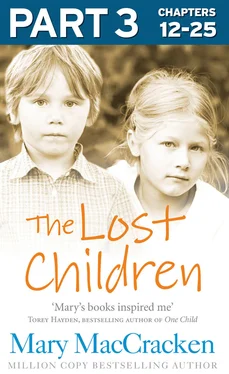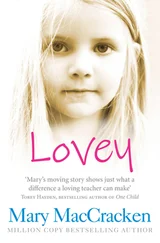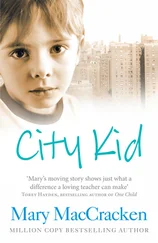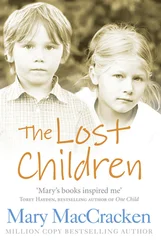Doris reads off a list of names and amounts, including bills from the phone and electric companies. “No. Skip that. Leave it until fall.”
Irritation now in her voice, no cheeriness, just irritation and weariness.
“Arthur. Look. I told you – I don’t need it. I know I didn’t get last month’s salary either; I can read the books as well as you. But I don’t need it. I’ve got my ticket in my pocketbook, groceries till the end of the week, and I’ll get an advance when I get there.
“The Board meeting is Thursday night, you know that, and I want to be in the black. I mean I want the school to be in the black. When you read the figures to the Board, I want them to look good, positive. The Board’s enthusiastic now; the fund-raising for the new school is moving right along. If they think we’ve gone in the hole they’ll let down, get discouraged.
“Mmmm. Right. Well, that’s your job, Arthur. You print up the sheets so they don’t notice my salary’s not there.
“All right. Good. Thanks a million. See you tomorrow then.”
Chris and Brad and Tom and Billy, Ivan and Jeffy, and more, more. All the children of the school join the images of Brian and Matt; all the children Doris has made room for, all the problems she faces without complaint.
Unexpectedly, she appears in the doorway of my small classroom. “Mary, how are you? Can I help you with anything?”
“No,” I say. “I’m just picking up some books to go over during the summer. Did I hear that you’re going to Guatemala?”
She sits down quickly on one of the tables; her bright brown eyes move over my face as if to read me, to see how much else I have heard.
“Yes; I’ve been there before. I’ve found it’s good to get away, get a change of scene during the summer.”
We sit quietly, Doris and I, in the dim classroom until she says, “Fourteen years now since I opened the school. We started with just four children – half a day.”
“How did you know about them? How did you think to open a school for emotionally disturbed children?”
“Well, you know, when you look back, it’s strange how it happened. The parents really began the school. They got the idea, four of them, and then came to me and asked if I’d be in charge.
“I’d done all kinds of things when I was younger. Then I began teaching and it turned out that I had a knack with the ‘problems,’ as the other teachers called them, and one thing led to another, and the next thing I knew, there we were starting the school.
“Harry … well, I wish you could have known him. He supported me all the way, baby-sat at night with Mike while I got my master’s, built furniture for the school, painted walls. I didn’t marry until late, but he was worth waiting for. I could never have started the school or kept it going without him.
“I remember right in the beginning, fifteen years ago, saying to him, ‘Harry, I don’t know anything about emotionally disturbed children,’ and him saying, ‘Well, Doris, it doesn’t sound to me like anybody else knows either, and at least you admit it.’”
I smile at Doris; she makes it seem so real. I can almost picture Harry.
“We built our own house, you know, little by little. Bought the property, then put it up a room at a time, and while we were measuring or painting or laying the bricks I’d tell him about the children. He knew each one as well as I did, and he helped me a lot more than anybody else. Had a listening heart, Harry did.”
Doris is quiet for a while; I can almost hear her listening to me, though neither of us is speaking. If Helga and I have a body language, Doris has an inner ear and she somehow knows things long before they are put into words.
Now she says, “I was a funny kid. Always bringing home sick cats or birds with broken wings; had a regular clinic in the backyard of our house when I was young. I must have nearly driven my mother crazy, but she never said a word until the summer I brought home Leland Hagstrom. He was handsome as anything, but weak – drank like a fish, couldn’t seem to leave the bottle alone. After supper one night that summer my mother took me out on the back porch and asked me how serious I was about Leland. I was pretty serious; he needed me, or said he did – and I liked that.
“I’d never lied to her and it didn’t occur to me to do it then, so I told her the truth, that we were thinking of getting married. You know what she said? ‘You’re a fool if you do, Doris. I’m not one to interfere, but remember’ – and I’ve never forgotten this – ‘remember,’ she said, ‘never do your social work at home.’”
Doris sighs and gets off the table. “Well, I didn’t marry Leland. I waited, and after a while I met Harry and we had a love affair that lasted thirty years … I don’t know what made me think of it now; I must be getting old, rambling on like this. Well now, you get to work, don’t let me keep you. Where are you off to for vacation?”
“Oh,” I say, “California, I think.”
“It’s a beautiful state; you’ll like it. Have a good summer now; I probably won’t see you until fall.” Another cheery wave and Doris disappeared out the door.
I finished gathering my books and papers, thinking all the while about Doris. Had she just been rambling on or in her own way had she been giving me advice? In any event, before I went home I drove five miles beyond the school and put a deposit on one of the new apartments that would be completed in the fall.
I am back from California and settled in my new apartment a week before school opens. The apartment is small and there is not much furniture, but it is carpeted in gold and open on both sides so that the morning sun pours through the bedroom and living room and the afternoon light fills the small kitchen and dining room.
Larry’s and my separation is complete, the final papers signed; only the formality of the divorce remains, and this has been postponed until January for tax purposes.
Elizabeth and Rick are back in school, tanned and healthy from the summer, and my own impatience to begin work, to see the children, wells inside me.
Bedlam. The first day in our new room is bedlam and Dan and I barely have a chance to speak to each other. Eight children in the room. Supposedly four are mine and four Dan’s, but we can never remember exactly who is whose.
Brian is back, taller, still flapping.
“Hey, Bri, did you have a good summer?”
“Mary. Mary. Is your father dead?”
What is this now? “No. My father isn’t dead. Why?”
“Where does he live?”
“In Guilford, Connecticut.”
“Yule O’Toole lives in Guilford.”
“Who is Yule O’Toole?”
“Yule O’Toole is dead. I thought maybe you were dead, too – the summer was so long.”
“Not me, Bri. I’m going to be around for a long time. I’ve got a lot to catch up on.” Later I found out that Brian’s grandfather had died during the summer.
Stuart comes sliding in the door.
“You look perfectly darling this fall, Mary.”
“Thank you, Stuart. I’m glad to see you.”
“Shit,” he says and kisses my hand, licking it with his tongue. Jeffy Olivero and his widowed mother have disappeared without a trace over the summer, and I wonder if he still sleeps beside her, pressing her earlobe between his thumb and forefinger, wherever they may be.
Tom and Ivan, Dan’s boys from the year before are back; the new room is strange to them and Ivan whirls and jumps in one corner, his beautiful face a silent mask, while Tom pulls up his turtleneck and paces back and forth along the wall.
“Good morning, Tom,” I say.
“Good morning, Tom. Goddamn fucking son of a bitch. Lost on the mountain. Call the one o’clock call.”
Читать дальше












